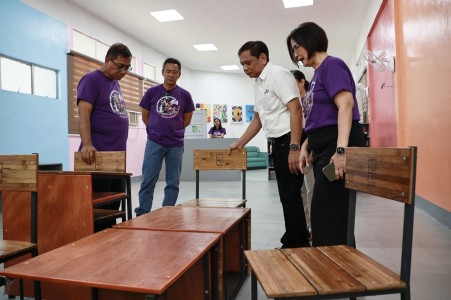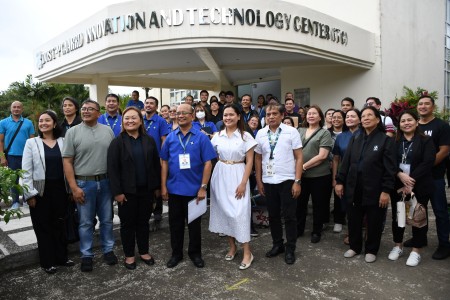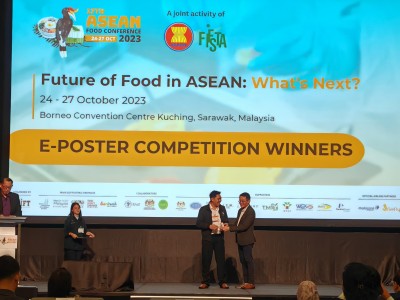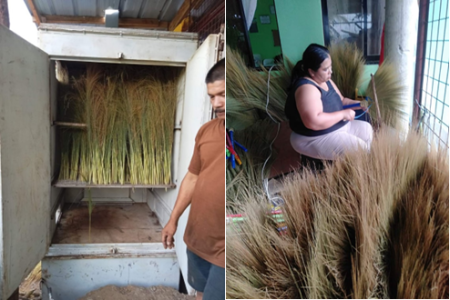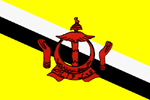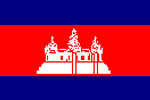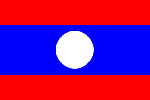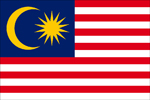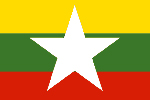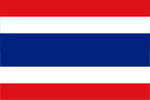DOST-FPRDI helps save almaciga trees Philippine | 30/05/2017
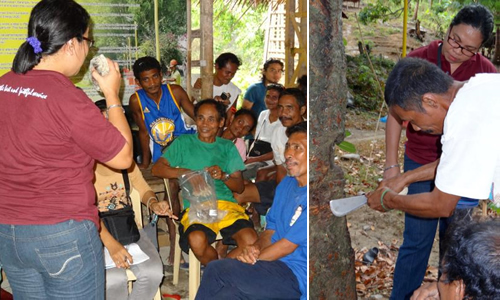
DOST-FPRDI’s Forester Florena B. Samiano lectures on the right way to harvest resin from the almaciga tree (Agathis philippinensis Warb.) to a group of indigenous people (IP) in Puerto Princesa City, Palawan. Coupled with hands-on exercises (below), the lecture was held in May last year as part of the project “Saving the Almaciga Tree” by the Centre for Sustainability, a non-profit organization.
For more than 20 years now, FPRDI has been an advocate of saving the country’s remaining almaciga trees by teaching tribal communities the correct way of resin tapping.
The almaciga is a huge tree that reaches up to 65 meters tall and 3 meters in diameter. It is native to the Philippines and grows in the mountains of Quezon, Zambales, Palawan, Cagayan, Kalinga Apayao, Nueva Vizcaya, Samar, Zamboanga and Davao.
Almaciga is prized for the resin that flows out of the bark when it is cut. Known as Manila copal, the resin is used for making varnishes, lacquer, soap, paint, printing inks, linoleum, shoe polish, floor wax, plastic, water-proofing materials and other products.
It is a top dollar earner among the country’s non-timber forest products, raking in USD 1,139,900 worth of export revenues from 2006 top 2015. Importing countries include Germany, Hongkong, Japan and Taiwan.
In recent years, however, many of the country’s almaciga trees have been reported to be dying, due mainly to heartwood rotting and destructive resin harvesting. This has prompted DOST-FPRDI to launch several initiatives to save the species.
In 2013, for instance, two of the Institute’s researchers – For. Arsenio B. Ella and For. Samiano – led the project “Enhancing the Adaptive Capacity of Indigenous Peoples by Promoting Sustainable and Community-Based Resin Tapping of Almaciga (Agathis philippinensis Warb.) in selected Certificate of Ancestral Domain Title (CADT) Areas in Palawan and Sierra Madre.”
The project was funded by the Southeast Asian Regional Center for Graduate Study and Research in Agriculture – Seed Fund for Research and Training Grant (SEARCA-SFRT) and not only taught 144 IP beneficiaries the right way of resin harvesting, it also oriented them on the basics of climate change and impact on forest ecosystems, and how tribal communities can adapt to it.
Among the project recommendations are: for the Department of Environment and Natural Resources (DENR) to include almaciga propagation and plantation in its National Greening Program, to conduct a nationwide assessment and ensure that proper resin tapping method is practiced, and for concerned groups to link the IPs with direct resin markets and train them on resin product development.
According to For. Ms. Samiano, “With climate change threatening our ecosystems, it is crucial that we take steps to protect our forest tree species, especially fragile ones like almaciga. We need to teach tribal communities not only the right way of harvesting natural resources, but to help them see the critical role they play in protecting our forests.”


